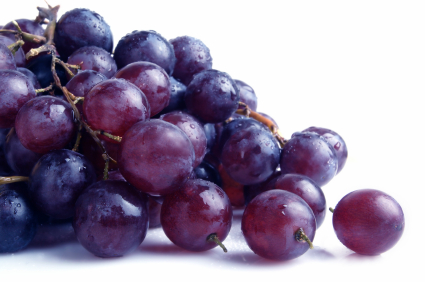You can enjoy a glass of red wine, knowing that it contains true health benefits. Resveratrol is a major antioxidant that comes from grape skins. It usually gets the credit for maintaining a healthy heart and reversing the signs of aging.
But there’s much more power within the grapes…
And if you’ve ever taken high blood pressure drugs, you’ll appreciate this discovery. Especially since the side effects of those drugs cause major issues. Like spending all your time running to the bathroom or erection problems.1
This interesting and potent alternative comes from grapes…yet it’s ignored by mainstream press.
What’s the secret that can keep you off blood pressure drugs?
It’s the grape seeds…easily available as grape seed extract.
Earlier laboratory studies have hinted at the promise in this extract. But now, a study of Italian women has given real insight into the power of these tiny seeds.2,3
For their four-month study, the researchers enrolled 119 women ranging in ages from 45 to 55. They were in generally good health but with mild signs of high blood pressure.
Researchers divided the women into three study groups and all started a lifestyle modification program. They all cut smoking, salt, alcohol, and caffeine. They exercised regularly and slept more.
One group made just the lifestyle changes. The other two groups added grape seed extract every day (either 300 mg or 150 mg).
Here’s why that’s important…
After one month, all the women had better blood pressure readings. However, the two grape seed extract groups had better improvements than the lifestyle-only group.
The women who weren’t taking any grape seed extract dropped their readings by 11 mmHg. Impressive? Sure. But not when you compare it to the group that took 150 mg. They had a 21 mmHg drop. And the women who took 300 mg of the grape seed extract? They had a 28 mmHG drop in their systolic blood pressure! That’s huge. And even better…
At the end of the study, 93 percent of the women who took 300 mg of grape seed extract had no signs of high blood pressure.
Researchers also found heart rate decreases across all three groups. The 300 mg group had slightly better improvements than the other two groups.
But really, it’s not all that surprising.
In previous studies, grape seed extract has shown a wide range of positive effects on cells. The extract seems to protect cells against damage due to free radicals like pollution and cigarette smoke. It also prevents inflammation. This indicates the extract helps protect the heart, arteries, nerves, and liver.4
Researchers have found that grape seed extract activates your nitric oxide production. It relaxes smooth muscle cells in major arteries.5 There is also evidence that grape seed extract protects against hardening of the arteries.6
All this from tiny grape seeds! The message is clear…
These seeds have potent antioxidant properties that lower blood pressure. Once you have a healthier diet and regular exercise under control, grape seed extract will support a healthy heart with no side effects.
You’d have to eat a lot of grapes to see this effect… So supplementing with grape seed extract is your best bet for getting a heart-healthy dose.
And to get even more grape benefits, you should be getting as much resveratrol as you can, too. Scientists have called resveratrol a “miracle molecule.” Only problem is, most resveratrol supplements are a huge disappointment… They can’t turn back the clock on aging like you think because they’re lacking the critical 4x combo.
Discover the best way to get your daily resveratrol, HERE.
Like this Article? Forward this article here or Share on Facebook.
References:
1 http://www.nlm.nih.gov/medlineplus/ency/article/007484.htm
2 http://www.hindawi.com/journals/ecam/2013/313142/
3 http://www.naturalhealthresearch.org/nhri/grape-seed-and-high-blood-pressure-directors-choice/
4 http://onlinelibrary.wiley.com/doi/10.1002/ptr.2761/abstract
5 http://www.ncbi.nlm.nih.gov/pubmed/12074963″>http://www.ncbi.nlm.nih.gov/pubmed/12074963
6 http://www.ncbi.nlm.nih.gov/pubmed/12628506

